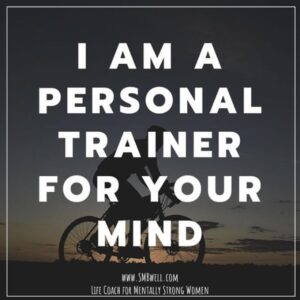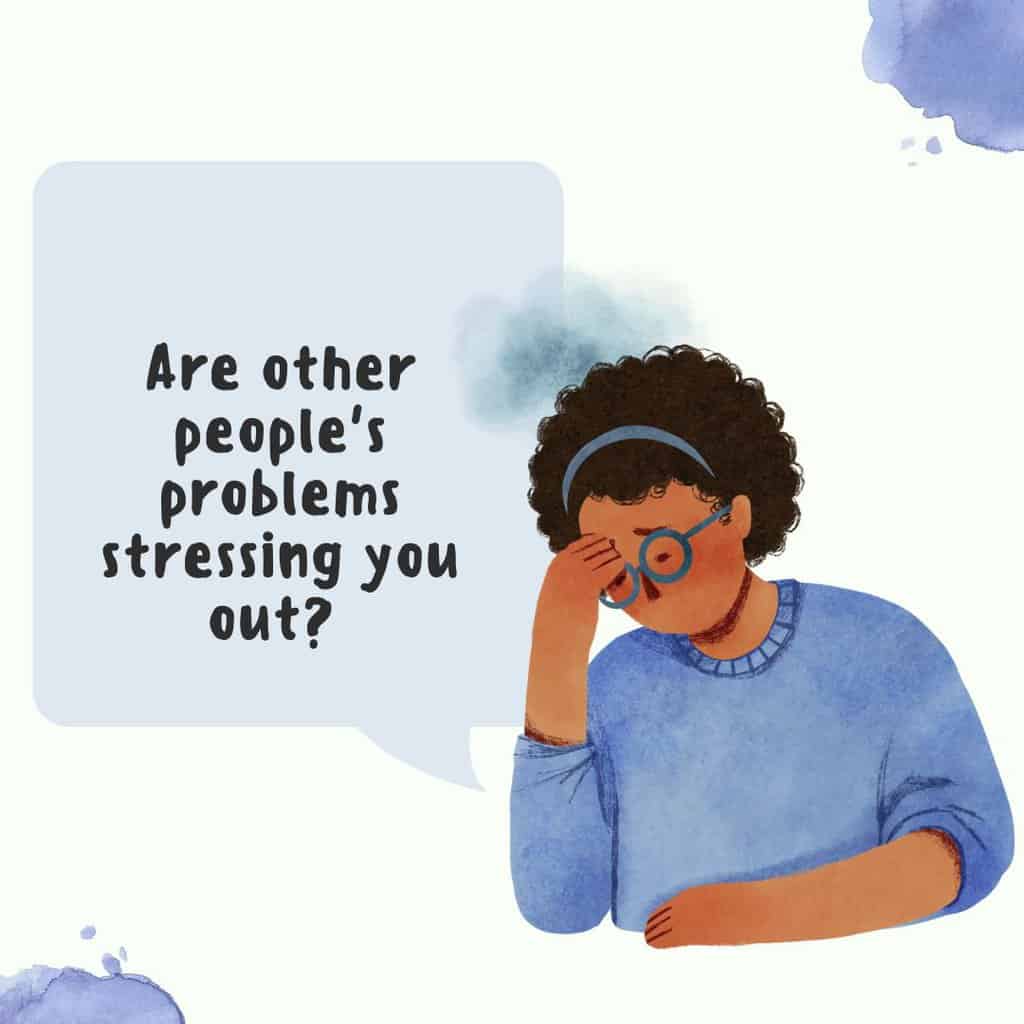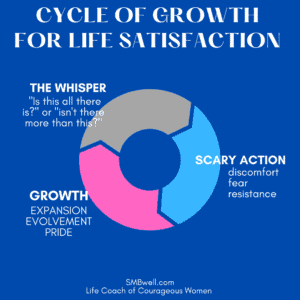Podcast: Play in new window | Download
Subscribe: Apple Podcasts | Spotify | Amazon Music | RSS | More
Other People’s Problems
How great would it be to stop stressing over other people’s problems? What if you could listen to your husband complain about his annoying coworker and not feel the need to help him solve it? How great would it feel to listen to your kid share his disappointment at not making a team and not feel the need to fix it? Uh, yes please!
I’m here to report it is possible! With practice, we can feel less stress about other people’s problems! Even family members problems! I have been working on this for the past several years now and I can report that I feel more ease and peace than ever before. This lesson is one that I’ve dug into these past 2-3 years and has brought me greater ease and a deep feeling of inner peace.
Not Mine To Solve
The lesson I’m learning is helping me to break generational and patriarchal programmings. It’s what I call “not mine to solve” freedom. This is how I am healing from codependency. When I practice these tools I feel less pressure and responsibility as a parent, a wife, a daughter, even a friend. Breaking generational patterns and systems of oppression may seem super heavy and yet, it’s really quite simple and freeing. Listen in to this week’s episode to hear examples of how this works in real life.
Nothing Has Gone Wrong Here.
The key to feeling less stress about other people’s problems and more peace in your days lies in practicing thinking about it two key different ways.
First, choosing to look at the big picture of life and thinking “nothing has gone wrong here,” Think back to a time when you thought you had a problem: not getting into your first choice school, a friend turning mean girl, getting let go from a job, whatever it was. In every single dark period of my life, when I thought I had a big problem, I can now look back and see how I grew from that life circumstance. I can see how the adversity or struggle was actually not a problem but served as an expansion of me as a human in some way.
In other words, when I reflect upon my emotionally abusive first marriage, my struggles with my biological family, my eating disorder, my miscarriage; I can see how getting through each of those very dark periods expanded me into a next level of myself. Further, it’s because of those problems that I’m a more mature, expanded, evolved version of myself.
That is to say, when I view life as more of a lesson or curriculum for me here on earth school to become the most evolved, expanded version of my self that I can, I feel much calmer, much freer. I can see that it’s not in spite of the problems but because of the problems that I’ve become the strong resilient woman I am today.
Could That Be True for My Family Members Too?
Guess what? If we grow through adversity, guess who else does? Our kids, our husbands, our parents, our siblings, our friends. This is great news for us overfunctioning, over-parenting, over wifing, over friending selves! Other peoples problems serve to help them grow and learn about themselves too! What beauty! Consequently, when I can see my struggles and dark moments are exactly what I needed to grow, to expand, and to feel pride in who I’ve become, it makes it easier for me step back from thinking I need to solve other people’s problems.
This is the practice and the mindset shift. When I can think “this isn’t mine to solve and nothing’s gone wrong here” it brings me ease, peace, and relief.
Instead of feeling responsible and stressed about other people’s problems, I’m much more able to release my need to control what the other humans in my life are doing. Try thinking about someone in your life with a problem you’re stressed about. Could you think of how, on some level, their current struggle may be something they too can look back on with a “hot damn, look at me! That sucked and yet, look how strong I am now?”
Empathy Still Needed with Other People’s Problems
To be clear, thinking: “this isn’t my problem to solve” or “nothing has gone wrong here” does not mean that you act cold and distant from our loved ones with problems. I give ample examples in this week’s podcast episode (linked here). Rather, this line of thinking frees you up to be super empathetic. Load on the understanding and compassion. What this line of thinking does is move you away from thinking it is yours to solve or that their problem is your problem. You get to say things like “oh wow that stinks” and “I’m so sorry that’s happening to you”.
The difference lies in you not taking on emotional responsibility for their issues. Being interdependent, not codependent. Terri Cole says you’re a high-functioning codependent when you are overly invested in the feeling states, the decisions, the outcomes, and the circumstances of the people in your life. I like to ask myself if it’s possible I’m thinking more about their problem than they are. Another great fact check is, are they asking for advice?
People Have Problems
Humaning is hard. Other people have problems. We have problems. Some moments of my days are awesome and some are awful. This is the human experience. In fact, I believe the quicker we can accept that some moments suck, that life isn’t fair, the quicker we can get to peace.
Further, remembering how every uncomfortable moment we had was part of OUR growth cycle, how we don’t get stronger, mentally or physically, without discomfort, we will find it easier to let our family members and friends have their growth opportunities.
Practice Time
Let’s practice “this is not my problem to solve” mentality this week, this season, heck, how about, this upcoming year? As I said, this lesson is one I’ve been working on. Patriarchy teaches us that, as women, other peoples uncomfortable emotions are our problems to solve. Let’s hand that programming back. I encourage you to hand that responsibility back to the person who’s brain is manufacturing the uncomfortable emotion. Let your mother in law be upset. Allow your husband to be stressed. Let your kid be disappointed. These are not your problems to solve. What is your problem? Your anxiety over their anxiety. Your discomfort with their discomfort.
This is a great time for you to dig into your practices of emotional regulation. How do you calm or regulate your emotions when you’re feeling big things – focus on that instead of how to calm or regulate other people’s emotions so you don’t have to have big or uncomfortable emotions. Nope – let them have the lessons they’re meant to have here on earth school. Pay attention to you – maybe life is telling you what your next lesson is – maybe this is your year to gift yourself one of my classes or life coaching sessions.






